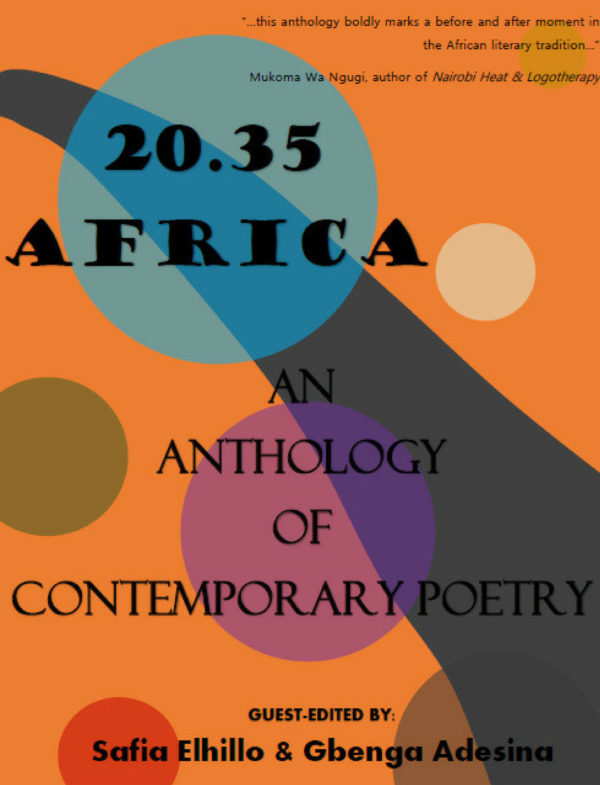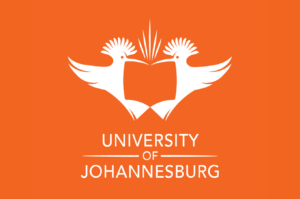
The poems we have curated in this anthology are electric, unruly, charged with desire and melancholies. They are intensely private yet quite magically find a way to be communal. There is a borderlessnes to the poems, not just of geographies and identities but also of sensibility, syntax, style, subversion of the white space and awakening of previously submerged subjectivities. The emotions stretch and carve a place for your specific protagonism. There is vastness, generosity. We were particularly drawn to the private poignancy of the voices. African literature has always been defined through the political and postcolonial, but this generation of voices turn inward toward interrogating tyranny of the intimate space. The private climates are called forth and lyrically examined. Categories are destabilized, and new freedoms emerge. Voices of women and queer people dominate the firmament and the men here mostly pursue a reimagined masculinity. Tenderness. Vulnerability. The embrace of intimacy, and ethical solidarities.
This is an exciting, transformative time in African poetry—largely thanks to projects like the African Poetry Book Fund and their corresponding prizes and publication opportunities, who, with the sheer number of African poets they publish, allow us to have a different sort of conversation around African poetry. Just as there is no singular performance of African identity, there is, increasingly, no singular, absolute aesthetic requirement in the African poetry of today. The poems in this anthology add to the living, electric archive in this conversation. We believe that even this relatively small selection of poems demonstrates the boundlessness of styles, concerns, experiments, and curiosities present in today’s African writing, today’s emerging African writers.
I (Safia) grew up Sudanese in diaspora, first within Africa, then on to Europe and, finally, America, where I’ve spent more than half my life so far. While so many markers of my identity shifted—my nationality, the language I acquired for my race, my language—Africanness remained the only constant, the only identity that survived across borders because of the multitudes it was able to contain. And this was true of the literature, too, and the way it shifted and expanded over the years, across generations: first in its freshly postcolonial concerns, in conversations around leaving and returning, and then, as diasporas continued to grow, works on both sides, by those who stayed and those who left and never returned. All engaging a breadth of curiosities, increasingly unbound by rigid requirements of theme and subject matter, all increasingly experimental and inventive. All African—a unifying identity that did not succumb to the violence of borders.
I (Gbenga) grew up mostly on the continent. But to be African is to be translational, ancient modernities intersect on your body. Even now, I take my global sojourns simply and complexly as an investigation of oceanic destinies bodies like mine have encountered for centuries. For every one of the nations in Europe or in North America I have entered, there was a history and a box waiting for my body. Long before I arrived, I was anticipated. Cultural memory teaches me then that I have kin and communities through ethical alliances, blood, diaspora and imaginative solidarities. This anthology in a way is a seal of that community.
I think now of two books in my childhood and early adulthood that were ports of transport: The Poetry of Black Africa, an anthology of poems edited by Africa’s first Nobel laureate in Literature, Wole Soyinka, and West African Verses, another anthology edited by Donatus I. Nwoga. Those books were my first introduction to global Africanness. I see the books even now through the eyes of memory: one brown and beige, the other yellow, both frayed at the edges from much thumbing. I committed many of those poems to memory. I was fascinated by the multiplicity of joys. Africanness in those poems was a complicated thing. A thing in flux and of the spirit. An ethical center beyond a geographical one. An open door as against a rigid wall. It is to this multiplicity that I trace my aesthetic lineage.
So many identities, in this world cut up by borders, are intended as borders themselves—defining oneself as one thing in order to differentiate oneself from another, from what one is not. And while so many identities are, in this way, directly caused by what one isn’t, limited to opposing the opposite of oneself, Africanness is expansive, is boundless, is entirely defined and redefined within itself. We decided this would be central to our editorial vision.
The poems in this anthology are individuated, each the voice of a charge. Lines from Akpa Arinze’s “After Suicide” have followed us around: a low, persistent voice of ache and trembling. After reading that poem, something in us shifted:
When you died mum moved your bed,
I took your place.
It was not difficult changing the television channel
from Keeping Up with the Kardashians to Black-ish.
At night your dog kept barking,
we thought it was learning to accept the heat.
The double sabre of direct speech cadenced with rawness and much vulnerability affixed a quality of truth to the poem. This is a poem that will live with us for a while.
Michelle Angwenyi, in “old things,” took this mastery of elegy forward:
You fold everything in the grainy velour of your birth: strings, coins, matchsticks,
green soda bottles ––
returning to the intangibility of time.
left behind, as you walk away, the last I see of you is your photograph. an obliteration yet
your substantial form, this fading away into its own…
J.K. Anowe, in “Tender Crow’s Feet,” complicates a desire that is African, and utterly human, and thus rescues it from the jaws of invented fears and shame. In Afua Ansong’s “Reincarnation,” we felt “a continuous reverberation of light wings.” Daad Sharfi, in her inventive poem “Be(coming) home to myself,” foregrounds us in this project of fluid citizenships:
At the end of the night,
I peel this country off my skin
I peel the other one too
I undress until I can call nothing but this body a home.
The question of language and linguistic destinies keep bobbing up to the surface of the sea that this project is. In Yasmin Belkhyr’s “& I Mourned What I Could Not Name,” this line stood out and stung us with its ache: “They beat our tongues smooth.” The “they” of the poem is a lyric indictment stretching across histories and cartographies. Lillian Akampurira Aujo, in “A dream in English,” became even more direct:
I am stumbling over the tongue of my father and his father
before him I am falling
These poems in entirety have held us and rocked us and ruined us like a hand of mercy.
Feast!
About the Writers:
Safia Elhillo is the author of The January Children (University of Nebraska Press, 2017). She is a co-winner of the 2015 Brunel International African Poetry Prize, winner of the 2016 Sillerman First Book Prize for African Poets and a 2018 Arab American Book Award, and a finalist for the 2017 Brittle Paper Award for Poetry for her poem “application for assylum.” She received a BA from New York University’s Gallatin School of Individualized Study and an MFA in poetry at the New School. She has received fellowships from Cave Canem, The Conversation, and Crescendo Literary and The Poetry Foundation’s Poetry Incubator. Her work has appeared in several journals and anthologies including The BreakBeat Poets: New American Poetry in the Age of Hip-Hop.
Gbenga Adesina is a poet and essayist. He jointly won the 2016 Brunel African Poetry Prize. His poem, “How To Paint A Girl,” was featured in The New York Times and was a finalist for the 2017 Brittle Paper Award for Poetry. He was a 2017 Emerging Poet Fellow at the Poets House, New York. Other honors include fellowships and scholarships from the Norman Mailer Center at Pepperdine University, Malibu, California, Fine Arts Work Centre, Provincetown, The Open Society Foundation in Goree Island, Senegal, and Callaloo at Oxford. His poetry chapbook, Painter of Water, was published by APBF and Akashic Books, New York in a series edited by Kwame Dawes and Chris Abani. His poems have appeared in Prairie Schooner, Brittle Paper, Vinyl, Ploughshares and elsewhere. His poetry manuscript, Holy Bodies, was a finalist for the 2017 Sillerman First Book Prize. He is currently a StarWorks Poetry Fellow/MFA candidate at New York University where he’ll also be teaching undergraduate poetry.









Summer Reading Challenge, 2019 – Khaya Ronkainen May 29, 2019 08:30
[…] 20.35 Africa by Safia Elhillo & Ghenga Adesina (Editors) […]